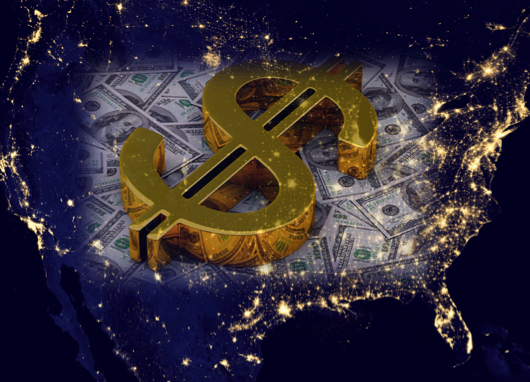The euro advanced against its US counterpart on Wednesday, as Greece raised cash to cover its April 9 loan payment to the International Monetary Fund, a sign Athens was prepared to meet its loan obligations.
The EUR/USD climbed to a session high of 1.0887. It would subsequently consolidate at 1.0851, advancing 0.35%. The EUR/USD faces initial support at 1.0760 and resistance at 1.0913.
The EUR/USD responded positively to news that the Greek government was raising money to cover its upcoming loan payment to the IMF. Greece sold €1.1375 billion in 6-month bills at a rate of 2.97%. The country will be required to pay €458 million to the IMF on Thursday. A failure to repay the loan tranche could set up the possibility of a default. No advanced industrial nation has ever defaulted to the IMF.
The common currency failed to rally against the British pound, as the EUR/GBP fell 0.66% to 0.7253. The pair had bottomed out in the early North American session.
In economic data, German factory orders declined unexpectedly in February, a sign Europe’s largest economy was still struggling to regain momentum despite recent improvements to the economy. German factory orders declined at a seasonally adjusted 0.9% in February, official data showed. A median estimate of economists forecast an increase of 1.5% after factory orders declined 2.6% in January.
Compared to February 2014, factory orders were down 1.3%, compared to a 0.3% drop the previous month.
Separately, Eurozone retail sales declined in March, the European Commission reported on Wednesday. Retail sales fell 0.2% in March following a 0.9% gain in February. The decline matched the median estimate of economists.
Compared to a year earlier, retail sales were up 3%, as expected, following an annual advance of 3.2% in February. The year-over-year gain was mostly attributed to higher demand for fuel and non-food products.
The Eurozone economy is forecast to expand just 0.3% in the first quarter, although the latest figures suggest the 19-nation currency bloc is gradually regaining momentum. Growth is expected to accelerate in the second quarter, setting up a much stronger 2015. Inflation is forecast to remain flat for the rest of the year before gradually returning to the European Central Bank’s target of just under 2% in two years’ time.
Read More:
nominal broad u.s. dollar index
crypto mining tools crypto premier guide
Tradersdna is a leading digital and social media platform for traders and investors. Tradersdna offers premiere resources for trading and investing education, digital resources for personal finance, market analysis and free trading guides. More about TradersDNA Features: What Does It Take to Become an Aggressive Trader? | Everything You Need to Know About White Label Trading Software | Advantages of Automated Forex Trading









